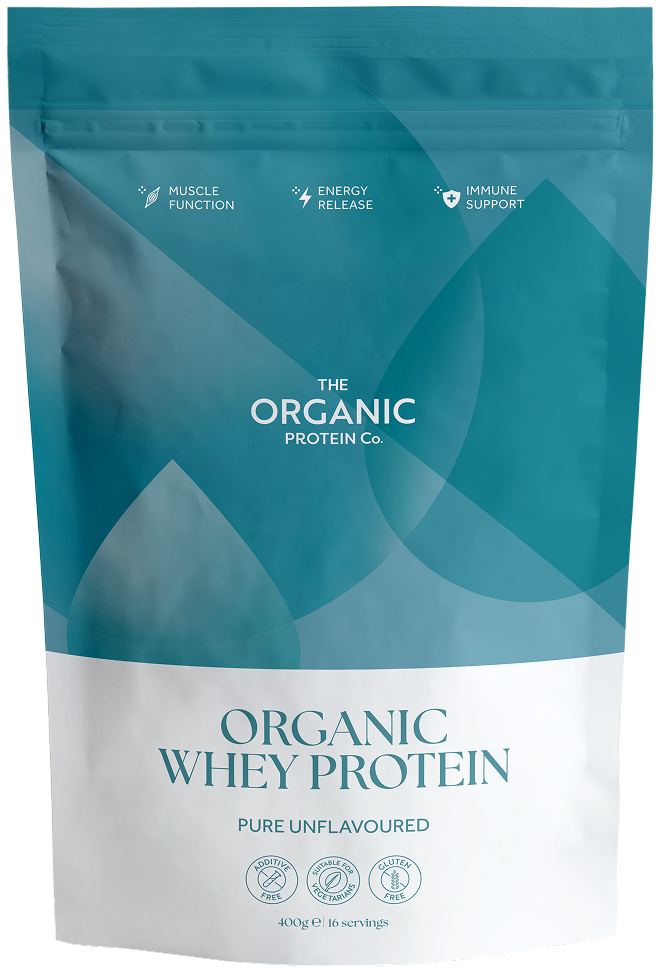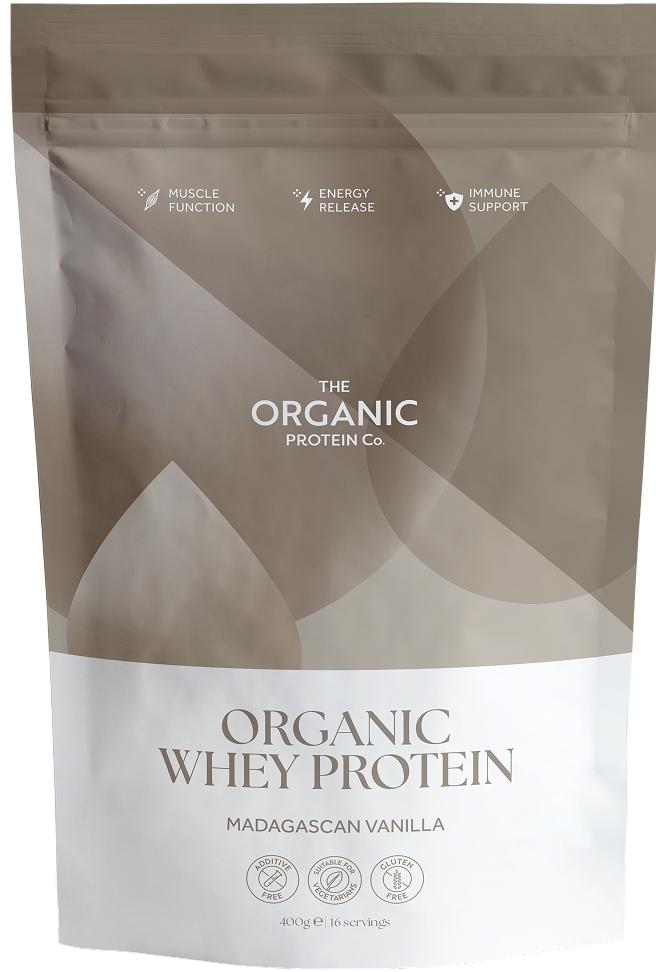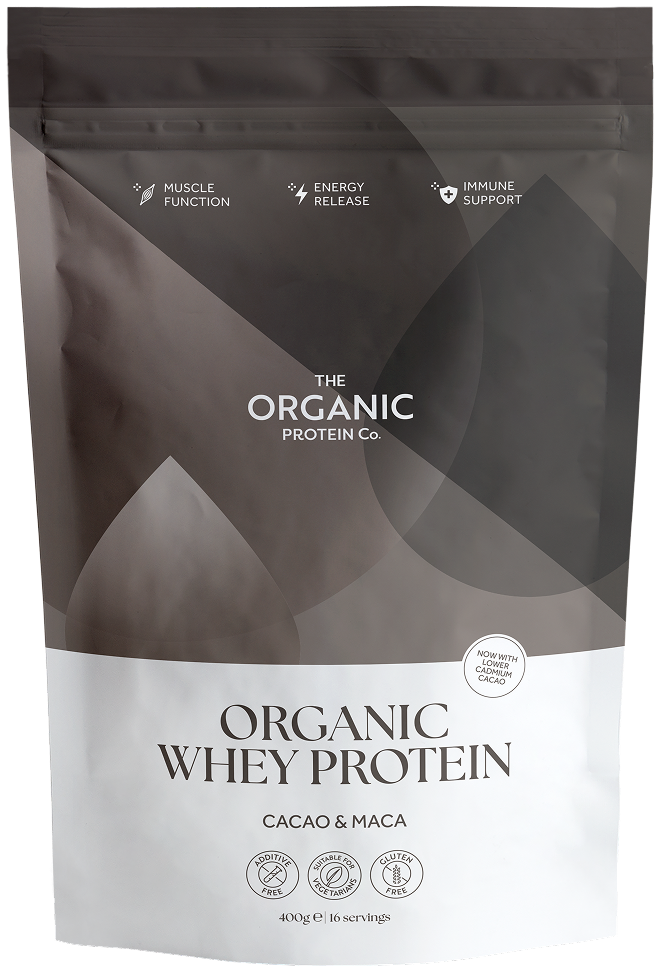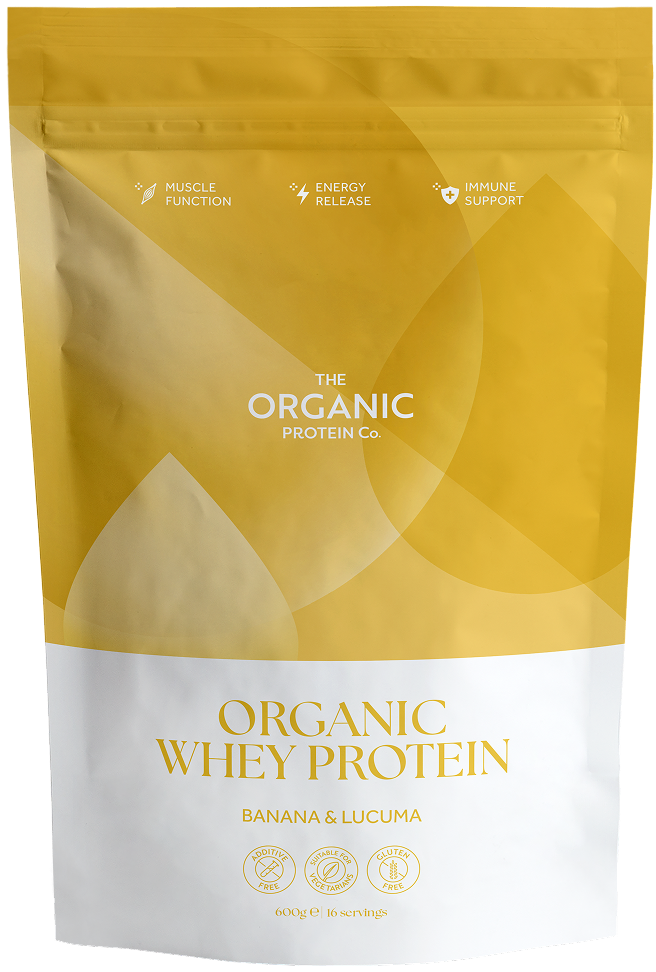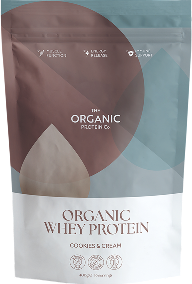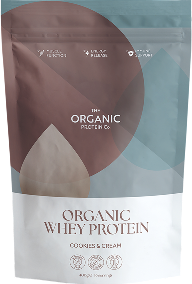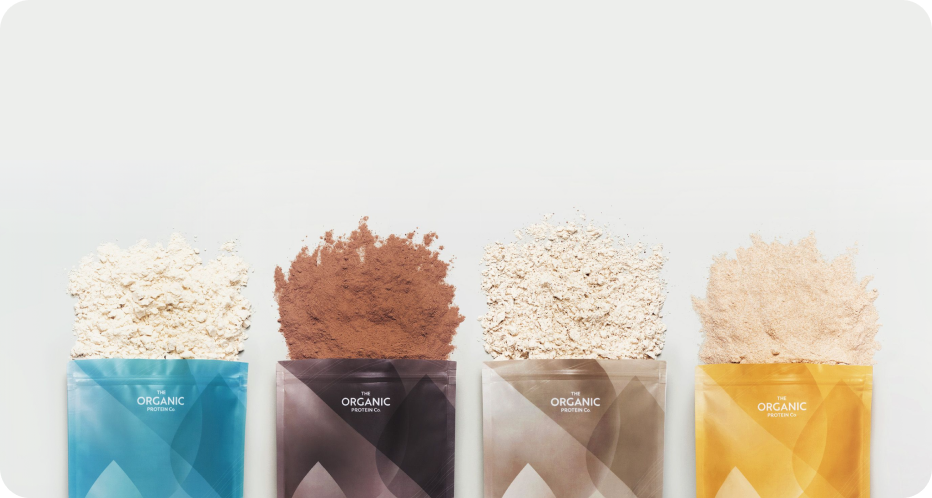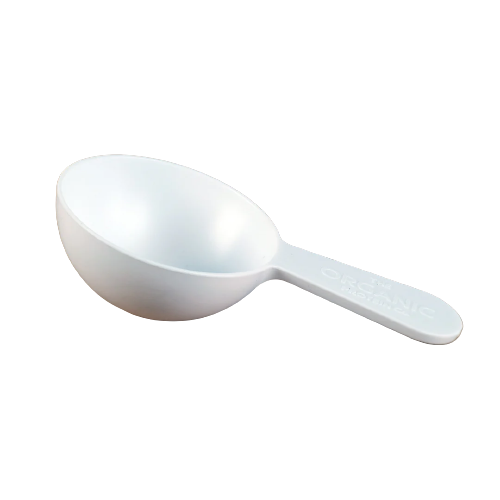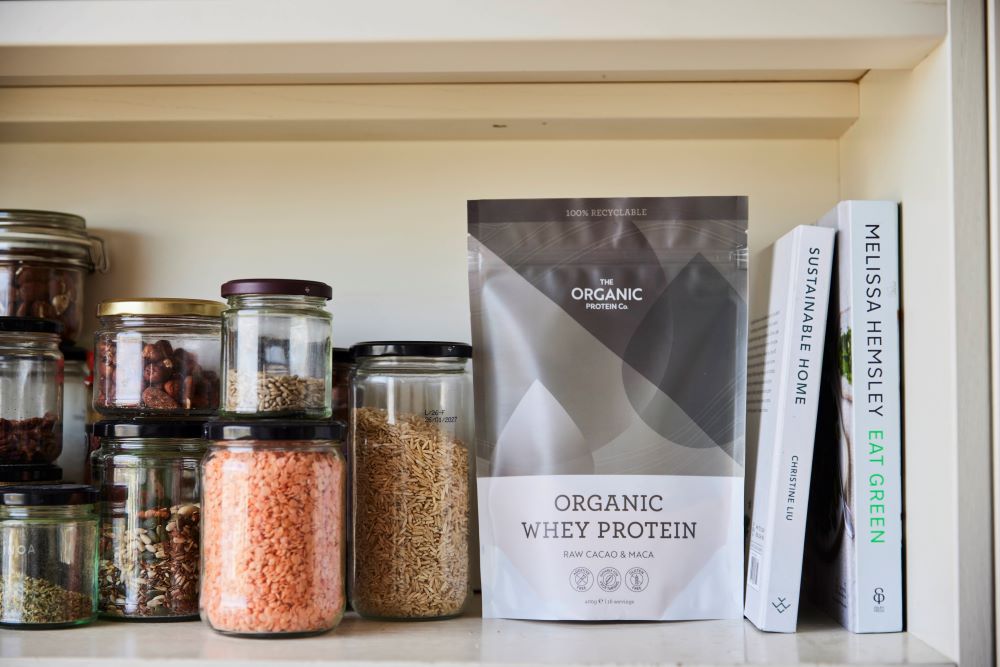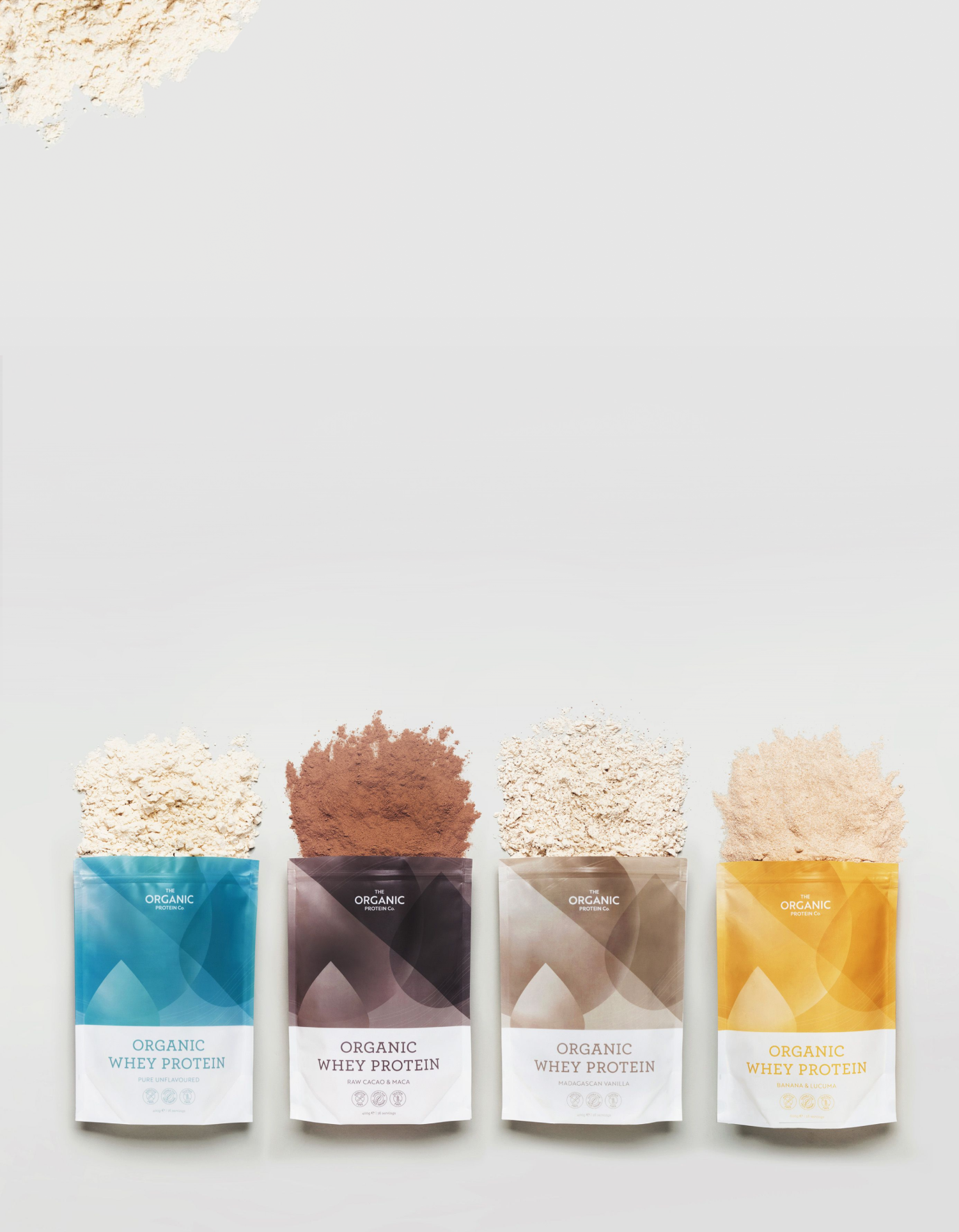Vitamin B12 plays a powerful role in our health. It’s essential for functions such as red blood cell production and DNA synthesis, as well as keeping you feeling energised. (1) Naturally found in animal products like meat, fish, and dairy, B12 can be a bit elusive in plant-based diets.
With plenty finding protein powders to be an easy, convenient way of boosting protein intake, we might also wonder about whether they can be a source of other nutrients. So, do protein powders have B12 and are they considered a good source of the vitamin? In this guide, we’ll take a closer look.
Do protein powders naturally contain B12?
As vitamin B12 isn’t naturally present in plant sources, most plant-based protein powders such as pea protein, soy protein, or hemp protein won’t contain this important nutrient – unless it's added through fortification.
Whey protein powder, on the other hand, is derived from dairy and may contain trace amounts or more of B12 due to its animal origin. In fact, some research into the topic found that long-term supplementation of whey protein increased the presence of B12 in the blood in adults and the elderly. (2,3)

B12 content in our organic whey protein powders
We understand that accurate nutritional information matters to our customers so we’ve had our own organic whey protein powders third-party tested for a range of vitamins and minerals, including B12.
This testing discovered that all of our protein powders (excluding Raw Cacao & Maca) contain B12 in significant enough amounts to be a good source of the vitamin, with UK guidelines suggesting a daily intake of 1.5µg for adults (19-64).
This contributes to the normal functioning of the immune system, normal red blood cell formation, and the reduction of tiredness and fatigue. This was alongside a range of other vitamins and minerals, which you can find more information about on individual product pages.
Product |
Vitamin B12 content |
% of NRV* |
0.5µg (per 25g) |
20% |
|
0.6µg (per 37.5g) |
23% |
|
0.5µg (per 25g) |
19% |
|
0.3µg (per 25g) |
13% |
*NRV stands for Nutrient Reference Value, which indicates the recommended daily intake of a vitamin or mineral needed to prevent deficiencies.
Why B12 matters in a balanced diet
Vitamin B12 is crucial for energy production, nerve health, and supporting a healthy metabolism. It helps our bodies convert food into energy and plays a role in red blood cell formation, which helps transport oxygen throughout the body. (1)
If you’re lacking in vitamin B12, this can lead to symptoms such as:
- Fatigue
- Weakness
- Shortness of breath
- Problems with memory, understanding, or judgement
Most of these symptoms develop gradually and may not even present themselves for 5 or more years in someone deficient in B12. (4)
For those who don’t eat animal products, like vegetarians or vegans, getting enough B12 can be challenging, as plant foods don’t naturally provide it. People who rely on plant-based protein powders may face a similar difficulty, so some choose to supplement B12 if their diets don’t meet their needs.

Alternatives for meeting B12 needs
As we’ve seen, although some whey protein powders like whey protein do have some B12 content, not every protein shake can be relied on to provide your full, recommended intake of the vitamin.
Adults need around 1.5 micrograms of B12 daily. Try to incorporate these foods into your diet to make sure you’re consuming enough B12:
| Animal-derived sources | Vegetarian and vegan sources |
|
|
For those who don’t consume animal products, it’s recommended that you do one of the following:
- Eat fortified foods two or three times a day to get at least 3µg of B12 a day.
- Take one B12 supplement daily providing at least 10µg of B12.
- Take a weekly B12 supplement providing at least 2000µg.

Make an informed choice for your nutrition
When choosing your protein powder, check for labels or ingredients that indicate vitamin B12 content if you’re specifically looking to meet your B12 needs. While most plant-based powders won’t naturally contain B12, some are fortified to support those who may be missing this nutrient.
Opting for a product from a brand that tests for nutrient content can help ensure you get the best quality possible and know where you’re getting vital nutrients from. Remember, protein powders should complement a well-rounded diet. While they’re great for protein supplementation, make sure you’re also incorporating whole foods or supplements for any nutrients, like B12, that your diet may lack.

